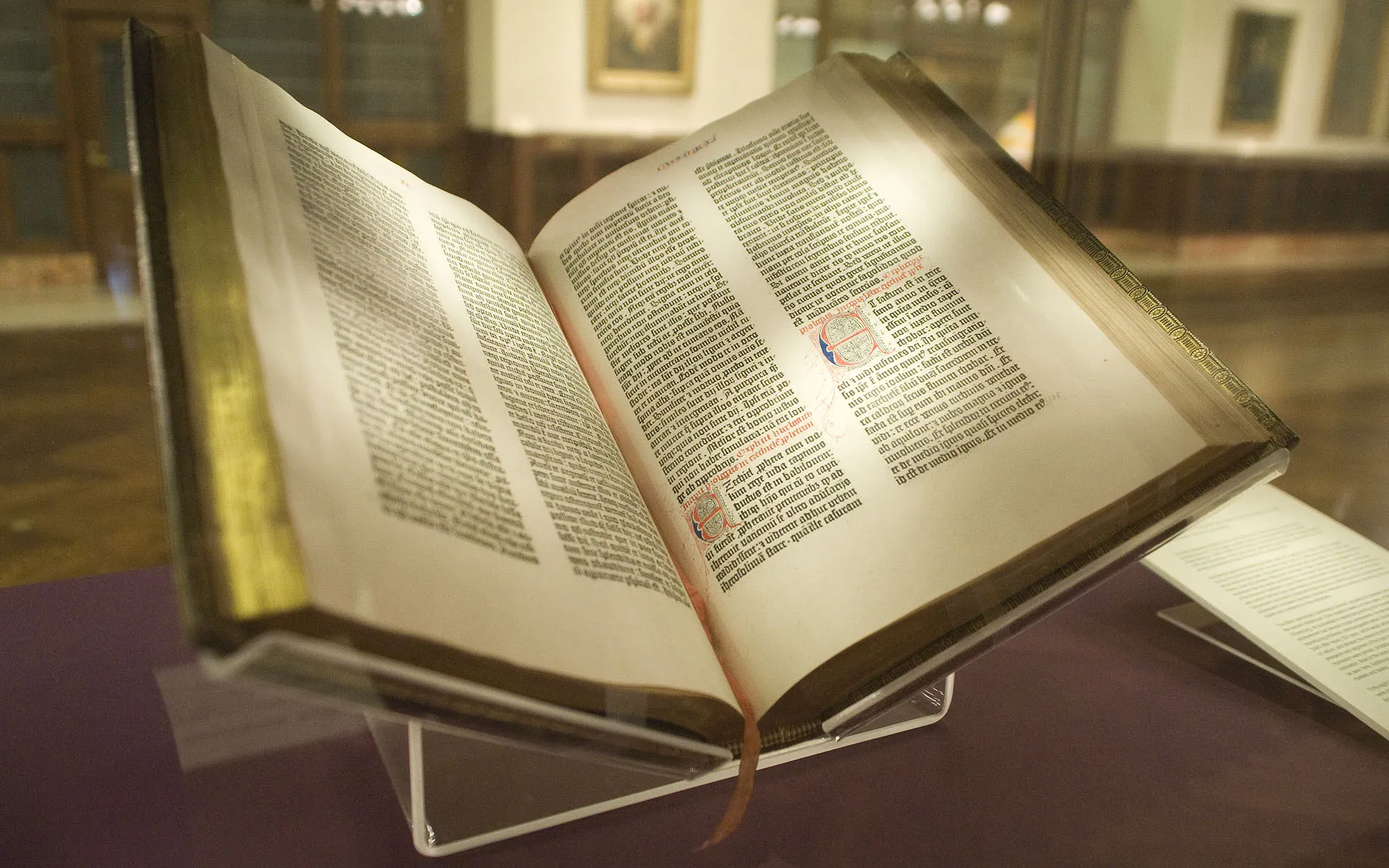As a biblical figure, Hur may not be as well-known as some of the other prominent figures in the Bible, but his significance cannot be underestimated. If you’re curious about who Hur was and the role he played in the biblical narrative, you’re in the right place. This post will delve into some of the most intriguing aspects of this little-known character’s life, including his relationship with Moses, his contributions to the Israelites, and more. Read on to discover the story of Hur in the Bible.
Who was Hur in the Bible?
You may have heard of the biblical figure Hur mentioned in passing when reading the Old Testament, but who was he exactly? Hur was a prominent figure who played a crucial role in the journey of the Israelites during the Exodus narrative. In this section, we will delve deeper into Hur’s life, significance, and contribution to the Israelites.
- Hur and Moses: A Strong Partnership

Hur had an incredibly close relationship with Moses. According to Jewish tradition, Hur was actually a brother-in-law to Moses, being the husband of his sister, Miriam. Together, Moses, Aaron, and Hur formed a powerful leadership triumvirate that guided the Israelites during some of their most difficult periods.
- Hur’s Role in the Battle with Amalek
A famous biblical account of Hur’s contributions to the Israelites took place during their first battle with Amalek. Moses instructed Joshua to battle the Amalekites while he, Aaron, and Hur went up to a nearby mountain to pray for their success. During the course of their prayers, Aaron and Hur supported Moses by holding his arms up, which has become a symbolic gesture of support to this day. Moses’ perseverance, as aided by Aaron and Hur, eventually led to victory for the Israelites.
- Hur’s Significance in the Wilderness

Hur’s contributions to the Israelites were not confined to the battlefield. During the Israelites’ time in the wilderness, Hur served as a trusted advisor to Moses and Aaron. According to biblical commentary, Hur was the leader of one of the twelve tribes of Israel, the tribe of Judah. His leadership was evidenced by his participation in important religious ceremonies, such as the anointing of the Tabernacle.
- The Contribution of Hur to the Israelites
As a leader and confidant of Moses and Aaron, Hur played a key role in the organization and guidance of the Israelites during their travels in the wilderness. He helped to resolve conflicts between the tribes and provided spiritual and moral guidance as needed. According to Jewish tradition, Hur was one of the few members of the Israelite community who never lost faith in God, despite the many hardships they encountered.
- Interpreting the Death of Hur: Biblical Scholars’ Views
The Bible provides little information on the death of Hur, leaving room for distinctive interpretations. Some scholars believe that he died during the Israelites’ battle with the Amalekites, while others think he passed away later in the wilderness. Regardless, his death was a significant loss for the Israelites, who mourned his passing.
In summary, Hur was a prominent and influential figure in the Hebrew Bible and played an essential role in the Exodus narrative. He supported Moses and Aaron during their leadership of the Israelites, provided guidance and leadership, and was an important member of the Israelite community. Despite his significant contributions, Hur is often overlooked in biblical scholarship, yet his importance to the Israelites cannot be underestimated.
Hur and Moses: A Strong Partnership
In the Bible, Hur is often mentioned in conjunction with Moses and Aaron. He played a critical role in supporting and assisting Moses throughout the exodus narrative. According to the Hebrew Bible, Hur was a member of the tribe of Judah and the grandson of Caleb.
In one significant instance, Hur is mentioned as Moses’ right-hand man during the battle with Amalek in Exodus 17:12. Moses instructed Hur and Aaron to hold up his hands so that the Israelites could win the battle. This gesture communicated that the victory of the Israelites depended on the faith of their spiritual leaders. Hur and Aaron held up Moses’ hands until sunset, and as a result, the Israelites were victorious.
Additionally, Hur stood alongside Aaron as a prominent leader of the Israelites when Moses was on Mount Sinai. It is said that Hur was tasked with maintaining order and peace while Aaron supervised the construction of the golden calf. Hur’s presence played an integral role in the Israelites’ survival in their new environment.
Aside from his contributions to the Israelites’ success in battle and wilderness survival, the Bible also suggests that Hur was an excellent teacher and judge. According to Jewish tradition, he taught the people the difference between right and wrong and served as a wise and compassionate judge when they had disputes.
Moreover, it was said that Hur was one of the few people allowed inside the Tabernacle and the Sanctuary alongside Moses and Aaron. This indicates that he was highly respected and trusted among the Israelites.

In summary, Hur was a crucial figure in the Old Testament’s exodus narrative, and he played an essential role in supporting Moses and Aaron as they led the Israelites through the wilderness. His leadership and teachings were significant in forming and maintaining the Israelites’ community.
Hur’s Role in the Battle with Amalek
During their journey in the wilderness, the Israelites found themselves in a battle with the Amalekites. Moses, Aaron, and Hur led the Israelites during the battle, with Moses praying for victory while Aaron and Hur held up his hands.
Here are some key facts about Hur’s role in the battle with Amalek:
- Hur was a trusted leader: The fact that Hur was included in this significant battle shows that he was a trusted leader among the Israelites.
- Hur supported Aaron and Moses: While Aaron and Moses were praying, Hur was holding up their hands. His role was essential in ensuring that the Israelites won the battle.
- Hur’s actions were symbolic: By holding up Moses’ hands, Hur was symbolically holding up the authority of God. His actions demonstrated the importance of teamwork and how essential it is to support each other, especially during challenging times.
Overall, Hur’s role in the battle with Amalek highlights the importance of leadership, support, and teamwork. It reminds us that a great leader is willing to support others and work together to achieve a common goal.
List of key takeaways:
- Hur was a trusted leader among the Israelites.
- He played a vital role in supporting Aaron and Moses during the battle with Amalek.
- Hur’s actions were symbolic and demonstrated the importance of teamwork.
- This story emphasizes the importance of leadership, support, and collaboration.
Hur’s Significance in the Wilderness
After the Israelites fled from Egypt, they spent forty years wandering through the desert wilderness. During this time, they faced many challenges and obstacles, including hunger, thirst, and attacks from other tribes. In this challenging period, there were few people who played a more critical role than Hur.
While Hur is not as well-known as some of the other biblical figures, his contributions to the Israelites cannot be understated. He was a leader who played a significant role in helping Moses and the Israelites navigate the wilderness.
Hur was one of the people chosen by Moses to accompany him to the mountain to receive the Ten Commandments from God. This indicates Moses’ trust in Hur as one of his closest and most reliable companions.
Moreover, Hur was also a skilled craftsman who helped to build the Tabernacle, the portable temple that the Israelites carried with them through the wilderness. According to Exodus 31:1-6, God filled Hur with spiritual gifts and talents, including the ability to work with precious metals and stones, to help him with this task.
In the book of Exodus, we learn that the Israelites often faced challenges while wandering in the desert wilderness. During these trying times, Hur emerged as a reliable and trustworthy leader, who thoughtfully and calmly helped to guide the Israelites.

For instance, when Amalek attacked the Israelites, Moses tasked Joshua with leading the Israelite army into battle. However, he knew that he needed someone trustworthy and strategic to help him lead the people in prayer. He turned to Hur, who accompanied Aaron and Moses to the top of the hill to pray for the Israelites’ safety. Their prayers were heard, and the Israelites emerged victorious.
In conclusion, Hur played a crucial role in the Israelites’ journey through the wilderness. He was a skilled craftsman who contributed to the building of the Tabernacle, a close friend and adviser to Moses, and a trusted leader who guided the Israelites through challenges and battles. We can learn from Hur’s example that even in the most challenging times, we should seek to use our talents and gifts to help others, and by doing so, we can improve and enhance our own lives and the lives of those around us.
The Contribution of Hur to the Israelites
As we dive deeper into the role of Hur in the Bible, it’s important to recognize his significant contribution to the Israelites. Although he is mentioned relatively few times in the Old Testament, Hur played a crucial part in helping the Israelites survive and thrive in the desert.
Here are some specific ways in which Hur made important contributions to the Israelites:
Building the Tabernacle: Along with Bezalel, Hur was tasked with building the Tabernacle, which was the central place of worship for the Israelites during their time in the wilderness. According to Exodus 31:1-6, Hur was given special gifts from God for this purpose. This demonstrates his skill and leadership in construction.
Leadership: Although Aaron was the designated high priest, Hur was a respected leader in his own right. When Moses left to speak with God, Hur was left in charge of the people (Exodus 24:14). This position of leadership shows that the Israelites trusted Hur to make important decisions in Moses’ absence.
Supporting Moses: Hur was often seen at Moses’ side, especially during battles and important moments. During the battle with the Amalekites, for example, Hur stood alongside Aaron and held up Moses’ arms to help the Israelites win (Exodus 17:12). This act of support shows how trusted and respected Hur was by the other leaders of the Israelites.

Overall, Hur was an important figure in the Israelites’ journey through the desert. He used his leadership and construction skills to help build the Tabernacle and keep the people organized and safe. Additionally, his close relationship with Moses and support of Aaron show how integral he was to the leadership of the Israelites.
Understanding Hur’s contributions to the Israelites can help us appreciate the role of biblical figures beyond just their names and appearance in the text. As we continue to explore the exodus narrative and the leadership of Moses, Aaron, and other key figures, we can see how each played an important role in shaping the Israelites’ religious history.
Interpreting the Death of Hur: Biblical Scholars’ Views
The Bible tells us about the life of Hur, a lesser-known but important biblical figure, who is mentioned in the Old Testament. According to the scriptures, Hur played a crucial role in the life of the Israelites during their wilderness journey. He was a close associate of Moses and Aaron, and he contributed significantly to the success of the exodus narrative. However, the Bible also mentions that Hur died, leaving many people wondering about the significance of his death.
Biblical scholars have come up with different interpretations of the death of Hur, and these interpretations vary depending on the context. For instance, some scholars view Hur’s death as a natural event that occurred due to old age or sickness. They believe that he died while serving the Israelites, just like any other faithful servant of God.
Other scholars view Hur’s death as a tragic event, given that he died before the Israelites reached the Promised Land. They argue that Hur, being a leader and an influential figure, would have made significant contributions to the Israelites had he lived longer. In this context, Hur’s death can be interpreted as a loss to the Israelites and a reminder of life’s impermanence.

According to some biblical scholars, Hur’s death has a symbolic meaning related to the spiritual development of the Israelites. They argue that Hur’s death reflects the people’s lack of faith and their failure to fully embrace God’s promises. They believe that the people’s lack of faith and their constant grumbling were the reasons why they had to wander in the wilderness for forty years.
In conclusion, the death of Hur in the Bible has been a subject of interpretation by biblical scholars over the years. Even though Hur was a minor biblical figure, the significance of his role in the Israelites’ journey cannot be ignored. Whether Hur’s death was a result of natural causes or symbolic of the people’s lack of faith, his place in the history of the Israelites remains a testament to his contribution to their well-being.














